Land Registry
Learn what a land registry is in Canadian real estate, how it functions, and why it’s essential for confirming ownership and legal property rights.
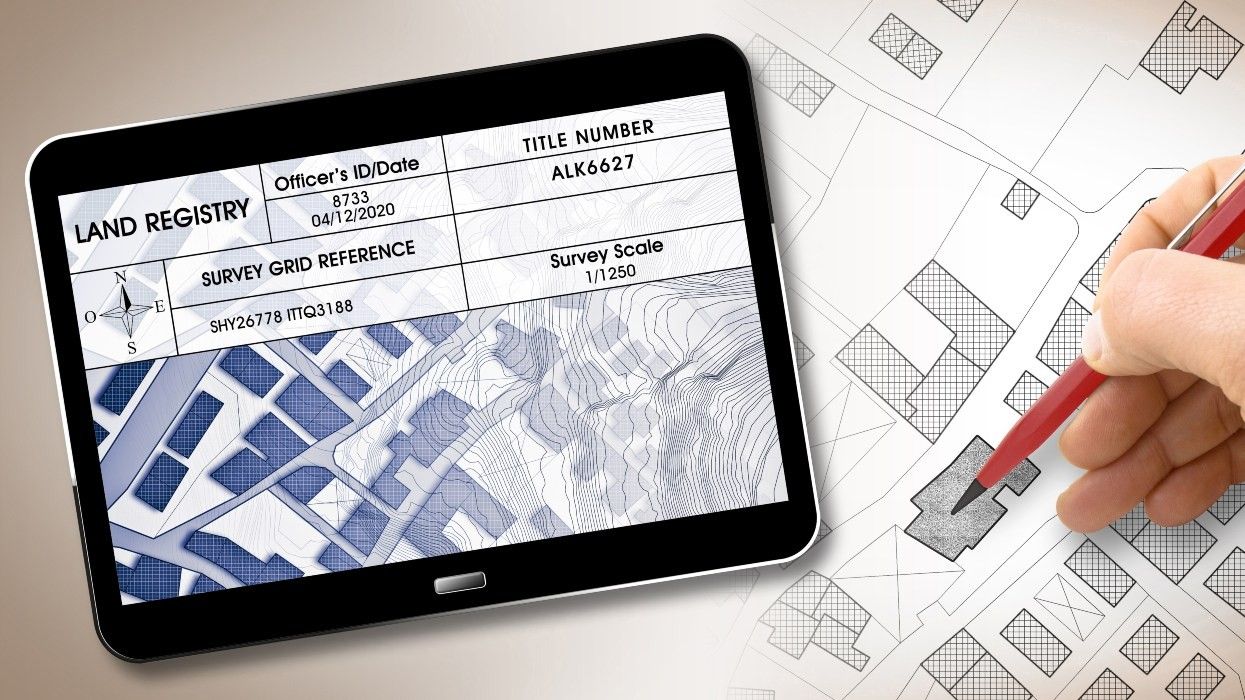
May 22, 2025
What is a Land Registry?
A land registry is the official government system that records and maintains information about property ownership, boundaries, legal interests, and encumbrances.
Why Land Registries Matter in Real Estate
In Canadian real estate, every province operates its own land registry or land titles system. These records are used to verify who legally owns a property and to disclose any liens, easements, or mortgages registered against it.
Land registries support:- Title transfers
- Mortgage registration and discharge
- Title insurance underwriting
- Legal protection of ownership rights
Buyers, lawyers, and lenders rely on land registry searches to confirm title validity before closing. Fees may apply to register or retrieve records.
Understanding land registries ensures accurate ownership documentation and helps prevent fraud or legal disputes.
Example of a Land Registry in Action
Before closing, the buyer’s lawyer reviews the land registry to confirm the seller is the legal owner and that the property is free of liens.
Key Takeaways
- Government-managed record of property ownership.
- Confirms legal title and encumbrances.
- Used in all transactions and financing.
- Essential for title security.
- Varies by province.
Related Terms
- Title Transfer
- Title Search
- Deed
- Encumbrance Certificate
- Real Estate Lawyer


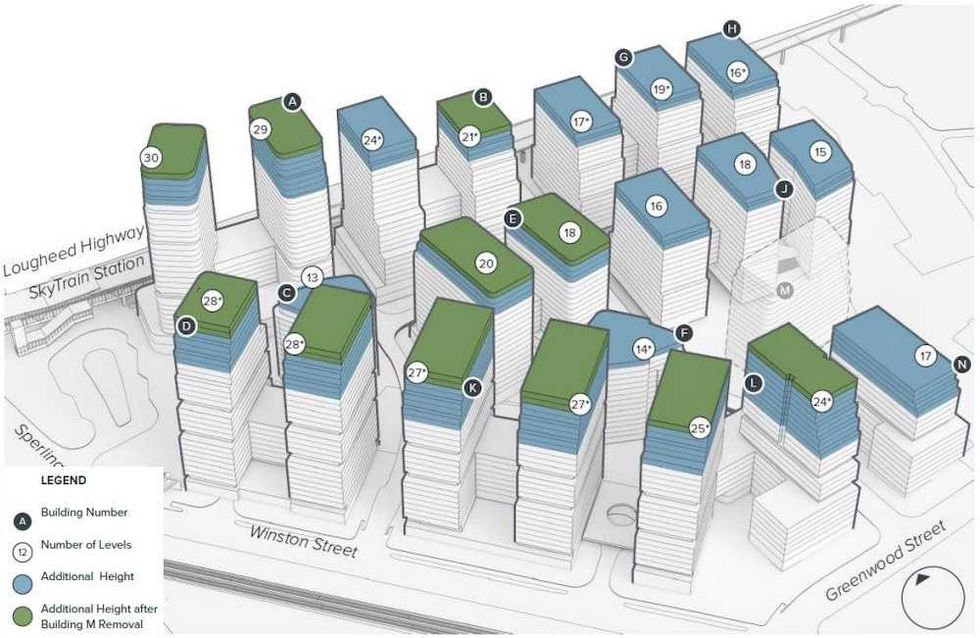 Building height changes from the previous master plan apllcation. (Peterson)
Building height changes from the previous master plan apllcation. (Peterson)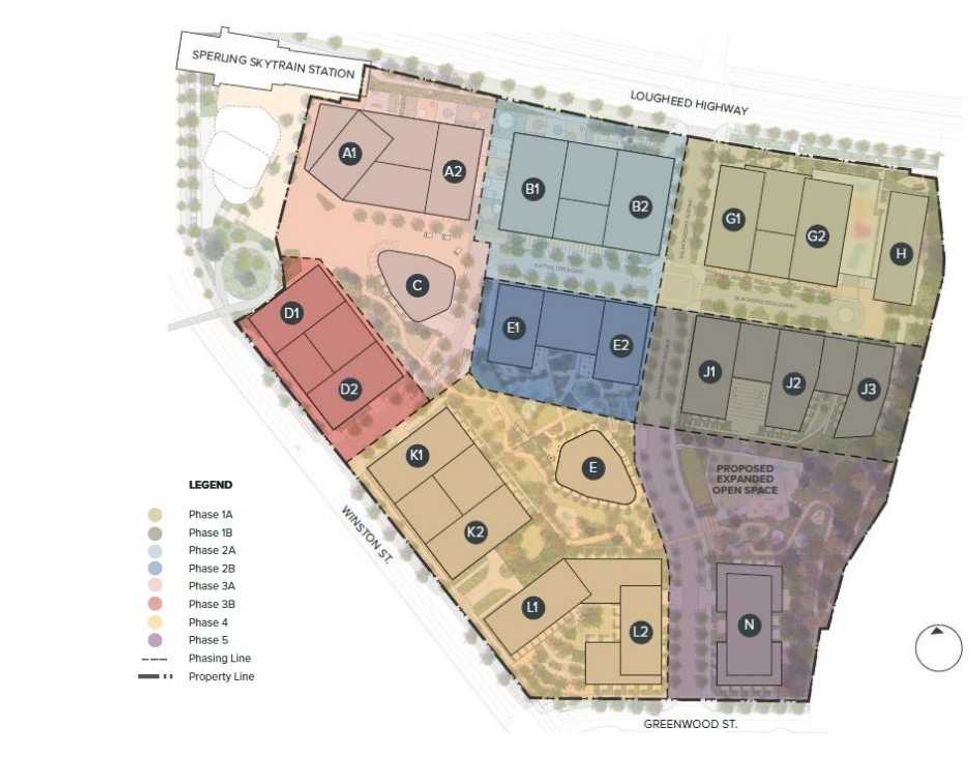 An overview of Blake Village and the phasing plan. (Peterson)
An overview of Blake Village and the phasing plan. (Peterson)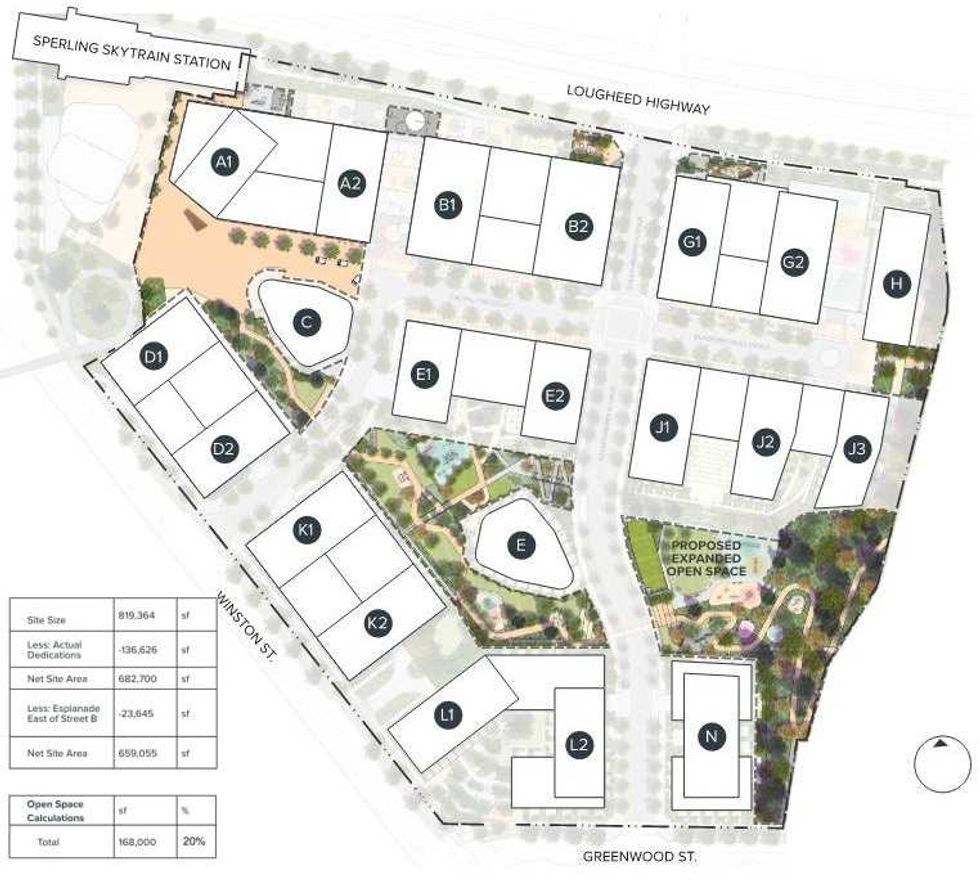 An overview of Blake Village and planned open space. (Peterson)
An overview of Blake Village and planned open space. (Peterson)

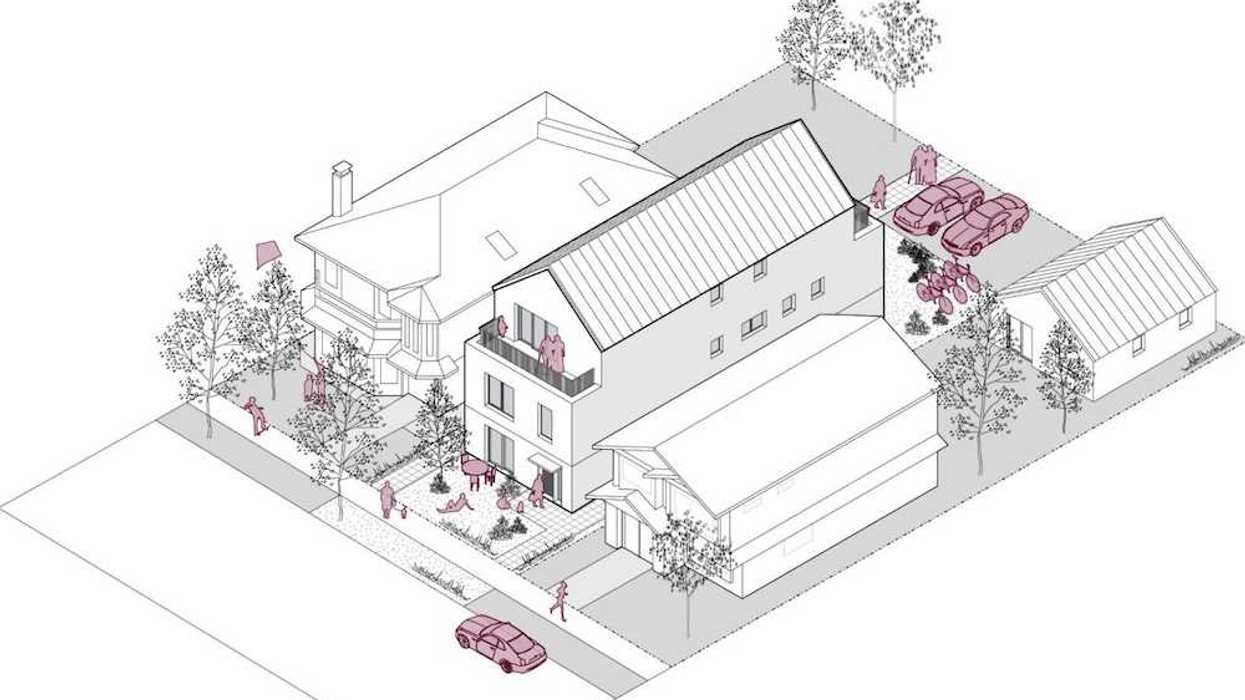







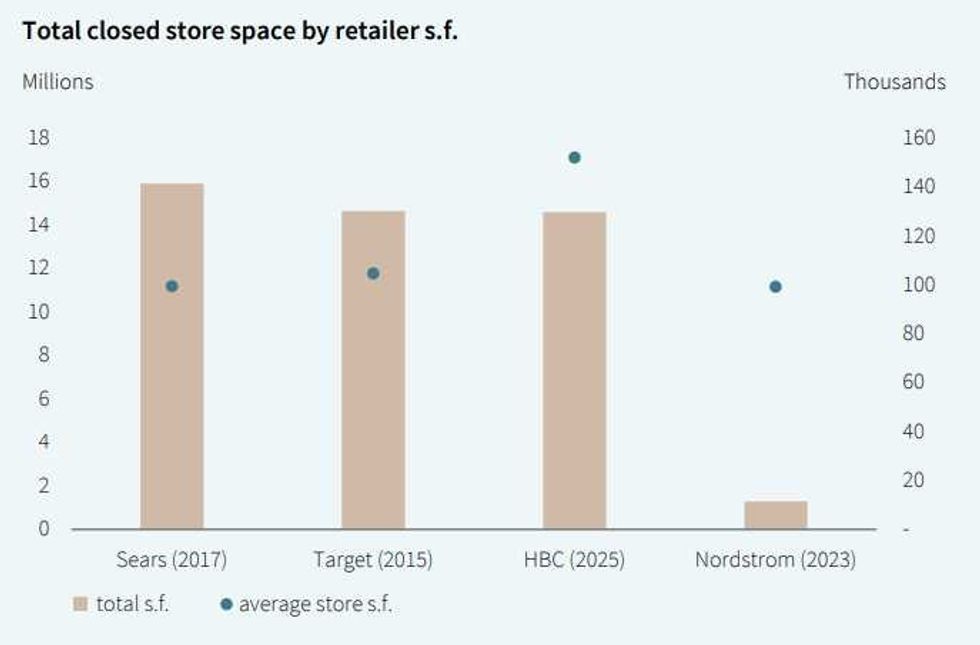 Hudson’s Bay vacated about as much space as Target did in 2015. (JLL)
Hudson’s Bay vacated about as much space as Target did in 2015. (JLL)

 A rendering of Frame in East Vancouver. (Peterson)
A rendering of Frame in East Vancouver. (Peterson) The Tesla facility set for 908 Raymur Avenue in Vancouver. (Beedie)
The Tesla facility set for 908 Raymur Avenue in Vancouver. (Beedie) Phase One of Sen̓áḵw in Summer 2025. (OPTrust, Nch’ḵay̓)
Phase One of Sen̓áḵw in Summer 2025. (OPTrust, Nch’ḵay̓) (QuadReal Property Group, Westbank)
(QuadReal Property Group, Westbank) The two-tower Cascades project under construction in mid-2025. (Ledcor)
The two-tower Cascades project under construction in mid-2025. (Ledcor) A rendering of Perla near Central Park. (Polygon Homes)
A rendering of Perla near Central Park. (Polygon Homes) Phase One of Concord Metrotown is located at the corner of Kingsway and Nelson Avenue in Burnaby. (Concord Pacific)
Phase One of Concord Metrotown is located at the corner of Kingsway and Nelson Avenue in Burnaby. (Concord Pacific) Myriad will complete Concert Properties’ Heart of Burquitlam community. (Concert Properties)
Myriad will complete Concert Properties’ Heart of Burquitlam community. (Concert Properties) SOCO 2 (left) in Coquitlam. (Drew Powell, LinkedIn)
SOCO 2 (left) in Coquitlam. (Drew Powell, LinkedIn) King George Hub in Surrey. (Submitted by PCI Developments)
King George Hub in Surrey. (Submitted by PCI Developments)